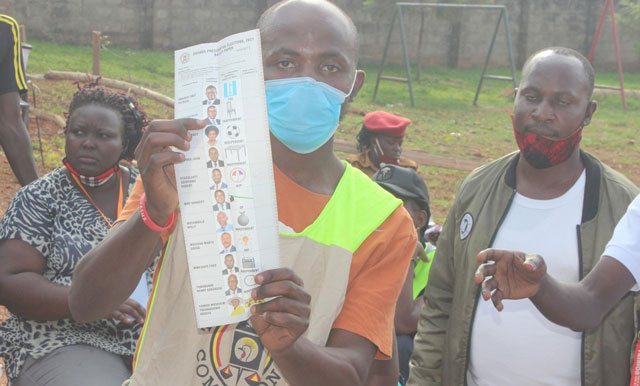
Kampala, Uganda | THE INDEPENDENT | The COVID-19 pandemic has regressed key aspects of democracy in Africa and the Middle East, including the disruption of electoral processes. That is one of the conclusions of a study by the International Institute for Democracy and Electoral Assistance.
The report released on Thursday this week lists Uganda among the countries that had restrictions on civil liberties like freedom of expression, and increasing persecution of opposition leaders and parties. According to the report, the pandemic has hit the Africa region at a time in which the significant advances of democracy in the last decades were coming to a halt.
The report titled “ Taking stock of regional democratic trends in Africa and the middle East before and during the COVID-19 pandemic” says the major challenges brought about by the pandemic involve the management of elections, restrictions on civil liberties, worsening gender equality, deepening social and economic inequalities.
It also says disruption to education, deterioration of media integrity, disruption of parliaments and amplified risk of corruption.
“The risk is that governments get accustomed to a new normal and fail to roll back anti-democratic measures,” says International IDEA Secretary-General Kevin Casas-Zamora. “Vaccines give people hope that there will be a return to “normality”, but we must also ensure that democratic norms are restored and strengthened as we emerge from the pandemic.
In countries like Cameroon, Kenya and Rwanda, there have been accusations of human rights violations and extreme force to implement restrictions on movement and assembly.
The report which came on the day when the Electoral Commission in Uganda published final released from the just concluded Presidential Election says leaders in Uganda including in Guinea and Uganda—took advantage of the spread of the coronavirus to manipulate elections, avoid international oversight and constrain the activities of opposition parties and civil society organizations.
The just-concluded general elections in Uganda were not observed by the Commonwealth Election Observer’s group as well as the European Union election observers as it had been during the previous elections.
The U.S. Ambassador Natalie E. Brown cancelled U.S. Diplomatic Observer Mission of Uganda’s Elections held on 14th January due to the decision by the Electoral Commission of Uganda to deny more than 75 percent of the U.S. election observers.
Some of the Presidential candidates like Robert Kyagulanyi Sentamu and Patrick Oboi Amuriat were arrested or sprayed with tear gas. The police and security agencies accused them of violating procedures put in place to curb the spread of COVID-19.
Some of Robert Kyagulanyi’s supporters were killed while others continue to be detained in military detention facilities as well as civilian prisons. Internal Affairs Minister, General Jeje Odongo and the Police Chief Martin Okoth Ochola have defended their actions saying they needed to have to ensure against the spread of COVID-19 during the campaigns.
The report explores the state of democracy in Africa and the Middle East in the context of the coronavirus pandemic, highlighting the trends and challenges facing democracy, as well as identifying opportunities for revamping democracy in the region.
According to the report, 22 per cent of countries in Africa have curtailed freedom of expression during the pandemic, including arrest and harassment of journalists. Inspector-General of Police Martins Okoth Ochola at one of the press conferences before the polls justified the harassment of journalists.
He vowed that security agencies will continue beating journalists purposely to ‘deter’ them from going where there is danger.
The report says 52 per cent of countries in Africa have used disproportionate and excessive police or military force to impose pandemic-related restrictions.
********
URN
 The Independent Uganda: You get the Truth we Pay the Price
The Independent Uganda: You get the Truth we Pay the Price



